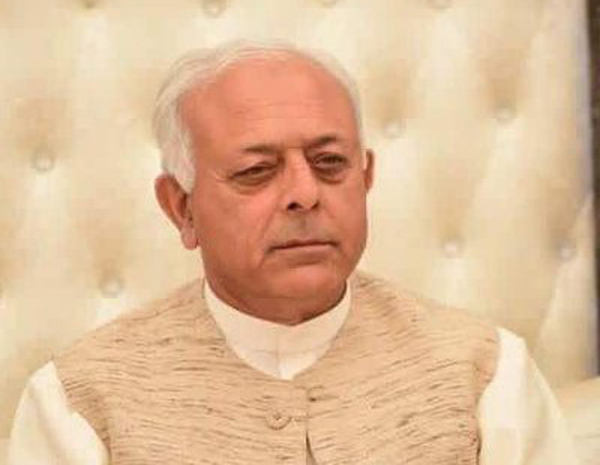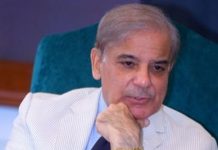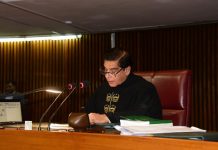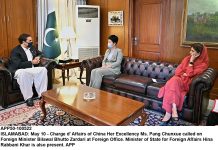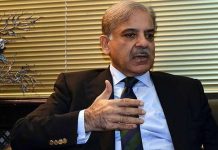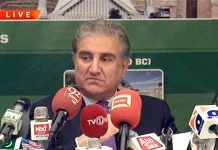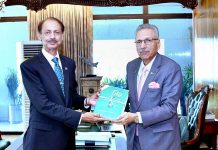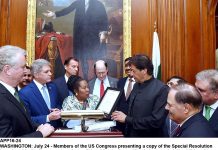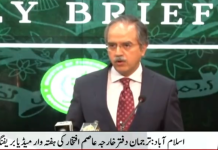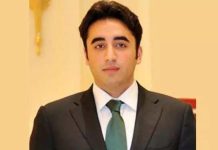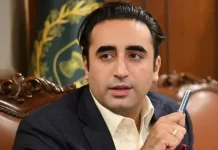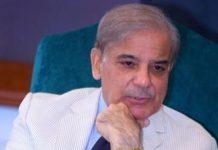ISLAMABAD: The Supreme Court, during Tuesday’s Panama case hearing, said that it would not set any example by disqualifying the prime minister over political speeches.
The five-member bench headed by Justice Asif Saeed Khosa resumed the hearing, pointing out that the Supreme Court was a constitutional court and not a trial court.
Justice Aijaz-ul-Ahsan said that the decision of the prime minister’s innocence would be taken after going through the evidence.
He questioned how Nawaz Sharif’s children could be held accountable for their father transferring money abroad.
Meanwhile, Justice Asif withdrew his observation about the implementation of Article 62 and 63 of the constitution.
Justice Khosa apologised for the remark he made on Monday in which he had said to the Pakistan Tehreek-e-Insaaf’s (PTI) lead counsel Naeem Bokhari, “If we start disqualifying people under this pretext, no one will be spared, not even your clients.”
The judge had been referring to the PTI’s call for disqualification of holders of public office on the basis of statements which are contradictory in nature under Articles 62 and 63.
The PTI counsel presented an investigation report by then additional Federal Investigation Agency Director General Rehman Malik regarding the Sharif family’s money laundering activities in 1996, however, the bench observed that the report could not be included as evidence.
Bokhari told the court that former Interior Minister Rehman Malik’s report revealed a ‘money trail’ source.
Justice Gulzar remarked on how Rehman Malik could make the report when his own name was also in the Panama Leaks.
“You are asking us to violate the oath,” Justice Azmat Saeed Sheikh told the PTI counsel, adding “Please address us and not the nation”.
Bokhari also alleged that the report proved the money laundering allegations against Finance Minister Ishaq Dar.
In response, the court reminded Bokhari that the Panamagate case was restricted to the London flats.
Justice Aijaz Afzal advised the PTI counsel to approach the National Accountability Bureau (NAB) to reopen the Hudaibiyah Paper Mills case. He added that the Supreme Court could direct NAB to investigate cases, but it was not in the apex court’s jurisdiction to ask the NAB to investigate references.
“The sanctity of the court needs to be maintained at all costs, do not take us out of our parameters,” he warned.
“We will only hear the case within the limits of Article 184/3,” Justice Aijaz said.
Article 184 pertains to the original jurisdiction of the Supreme Court.
Bukhari told the Supreme Court that Hassan Nawaz established a company in the UK in the year 2000. To this, the bench raised questions regarding how the premier’s son could establish a company in 2000 when he had been studying till 1999.
During the hearing, the court reminded Bokhari that a ruling could not be based on newspaper clippings submitted as ‘evidence’, to which the PTI counsel responded saying that the court had ruled on the basis of newspaper clippings in the past.
Justice Azmat Saeed asked Bokhari if any other court in the world had given a ruling based on the Panama Papers to which the PTI’s lead counsel responded saying that the SC should take the first step and set an example.
Later, the Sharif family’s lawyer told the court that the Lahore High Court had disposed of the FIA’s FIR over which Justice Aijaz-ul-Ahsan said that the bench could not give a verdict on a dismissed FIA report.
The court then adjourned the case for the day.

